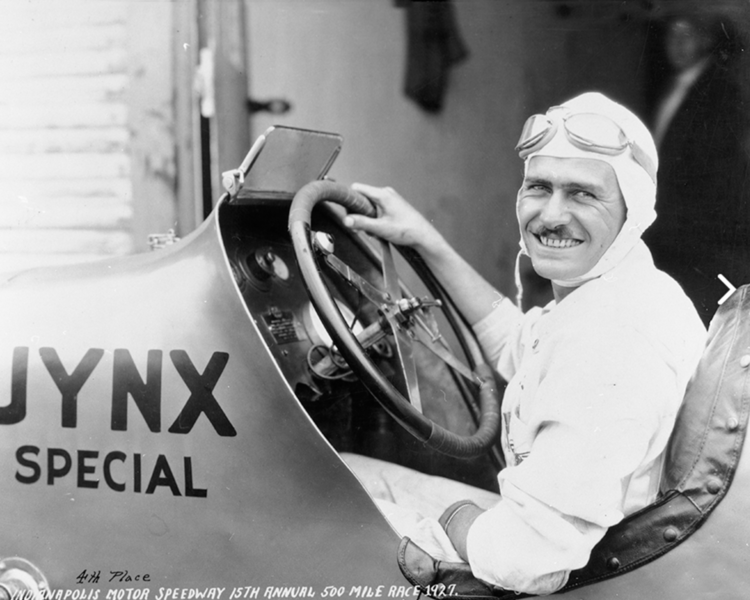
Warren Wilbur Shaw at age 5 won his first race riding a goat at the county fair. He would go on to become one of the greatest open-wheel racers in history, winning the Indianapolis 500 three times and helping save the Speedway from being sold as an industrial park after World War II.
Wilbur started racing in the early 1920's and finished fourth in his first try at Indianapolis. In 1931 he drove a Duesenberg over the third turn wall, wiping out the car. Suffering only bruises, Shaw later relieved the driver of an identical team car. Competitors were stunned when Shaw's "ghost" passed them again in turn three, this time staying on the track.
The turning point in his career came in 1936 when he decided that ownership of his cars was key to winning the annual classic. After placing seventh in that year's "500", leading in a dominant role, he returned to win in 1937.
Impressed with the European machinery at the Roosevelt Raceway revivals of the Vanderbilt Cup, he persuaded Mike Boyle, A Chicago industrialist, to sponsor a Maserati, which was altered for the Speedway, with everything offset to the left. Shaw won the 1939 and 1940 races in the car and was leading by 5 laps in 1941 when a wheel hub broke. He hit the wall, fracturing three of his spinal vertebrae.
During World War II he worked as an aviation sales manager for Firestone. The 9-to-5 routine nearly drove him crazy and may have partly been a factor in spurring his rescue efforts for the old Speedway, when Eddie Rickenbacker lost interest and wanted to use the land as an industrial site.
Wilbur pursued Tony Hulman to buy the track and, as Speedway president, Shaw struggled to put on the 1946 race. Ultimately, he marshalled enough cars and drivers, hustled the Speedway into reasonable shape and organized a workable Speedway staff. The throng that jammed through the gates on Memorial Day foreshadowed a glorious destiny.
Armed with Hollywood good looks, right down to his pencil thin mustache, and his dynamic personality, Shaw was a superb communicator. He became an ambassador to the automobile industry whose allegiance he felt was essential to the future of his sport.
When his private plane went down in 1954 on one of his many sojourns to Detroit, the future of auto racing and the Indianapolis Motor Speedway had been assured, as had Wilbur Shaw's place in history.